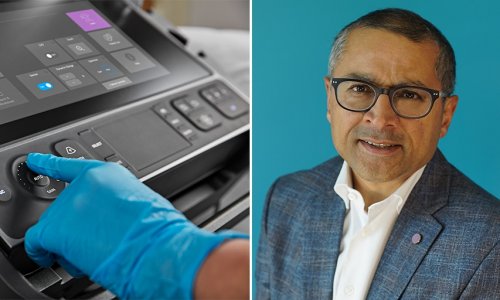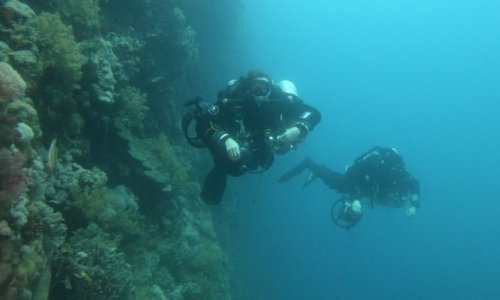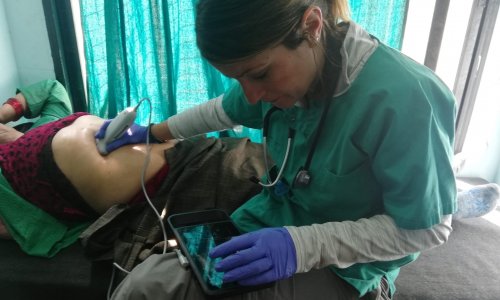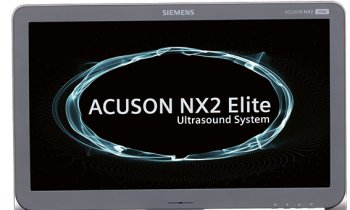Emergency Medicine
POC ultrasound takes to the skies
Given their quality, small size, portability and robustness, SonoSite point-of-care ultrasound systems play vital roles in hectic A&E and surgical departments, and also in monitoring patients in transit.
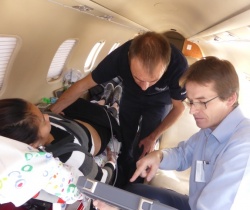
Working in Berufsgenossenschaftliche Unfallklinik (BGU), Tübingen, anaesthetist Dr Rüdiger Eichholz believes in the importance of POC ultrasound and has set up a training programme for clinicians who accompany patients with International SOS. For years, Dr Rüdiger Eichholz has found point-of-care (POC) ultrasound invaluable in anaesthesia, ICU and trauma medicine for FAST scanning (Focused Assessment Sonography for Trauma), ultrasound- guided nerve blocks and vascular access, plus general cardiac, chest and abdominal scanning.
At BGU, a trauma, orthopaedic, plastic and craniofacial surgery centre, a large part of his work involves performing regional anaesthesia under ultrasound guidance. As a certified DEGUM trainer, he also spends considerable time travelling, demonstrating ultrasound’s advantages and encouraging and training clinicians to routinely use the technique.
As a co-ordinating doctor for the German branch of International SOS, Dr Eichholz talked to patients, assessed their needs and helped to solve all kinds of medical problems. This included undertaking face-to-face consultations and often evacuations or repatriations. Although termed ‘emergencies’, the SOS flights do not go directly to or from an accident or major incident, but focus on patient transfers. All journeys are elective, with some degree of planning and preparation involved, consent from the patient or relatives, payment and insurance details, and agreement and discussion with the releasing and accepting hospitals. While some patients are quite ill, others are not; sometimes the team moves a fairly healthy patient. Some repatriations are simply about transferring a patient to a more sophisticated medical centre to ensure nothing serious is overlooked, especially if surgery is needed.
When Dr Eichholz was approached to join the International SOS Abu Dhabi team as a flight physician he found the aircraft was equipped with a new NanoMaxx system, which proved invaluable during patient transfers. ‘While I’m very familiar with using POC ultrasound in this setting, I discovered that many of the team only occasionally used ultrasound and were not entirely at ease with the technique, or aware of its full potential in performing diagnostic procedures and needle guidance,’ he said. ‘So, we established a training programme at International SOS, using my knowledge and teaching experience to explain the advantages of POC ultrasound to help flight doctors to make the most of its diagnostic capabilities.’
Based on the AEN (Armbruster Eichholz Notheisen) training concept developed by Dr Eichholz and fellow anaesthetists Dr Wolf Armbruster (Evangelisches Krankenhaus Unna) and Dr Thomas Notheisen (BGU), the teaching programme (English language) is adapted to aero-medical issues; it uses similar methods, 3D imaging and hands-on sessions with small classes. The M-Turbo and the NanoMaxx are ideal devices, both for the Eichholz pointed out. ‘The system’s robustness, portability and quick boot-up time are all very important on air ambulances and, although we have power packs on board, it’s also very convenient to have a good battery life.’
‘For training purposes, it’s important to have a system that’s small, simple to operate and easy to understand from the technical perspective, and both these systems, especially the NanoMaxx, fit this profile perfectly. The ease of use has been especially important in establishing the programme because, while most of the doctors could see a role for POC ultrasound, many were cautious and not happy with their knowledge and skill levels.’ To help build confidence, the team introduced pre-flight scans for even healthy, walking, talking patients. ‘In this way, flight doctors practise their ultrasound skills, develop a routine pattern of examination, learn to differentiate between normal and abnormal images, and ultimately gain confidence in their scanning abilities. The pre-flight scans also give a comprehensive baseline picture of each patient before a flight, and are entered into that individual’s electronic file for future reference.’
Several training courses have taken place and a systematic in-flight manual has been prepared, with a checklist and ‘how to’ guidance on the device, plus specific example guides for the most frequently used techniques, e.g. how to examine the chest, heart or vessels before vascular access. ‘My main aim has been to continue to pass on my enthusiasm for using ultrasound – and so far so good! The programme has been very warmly received, with the potential to make it available to International SOS doctors worldwide,’ Dr Eichholz concluded.
10.11.2014



